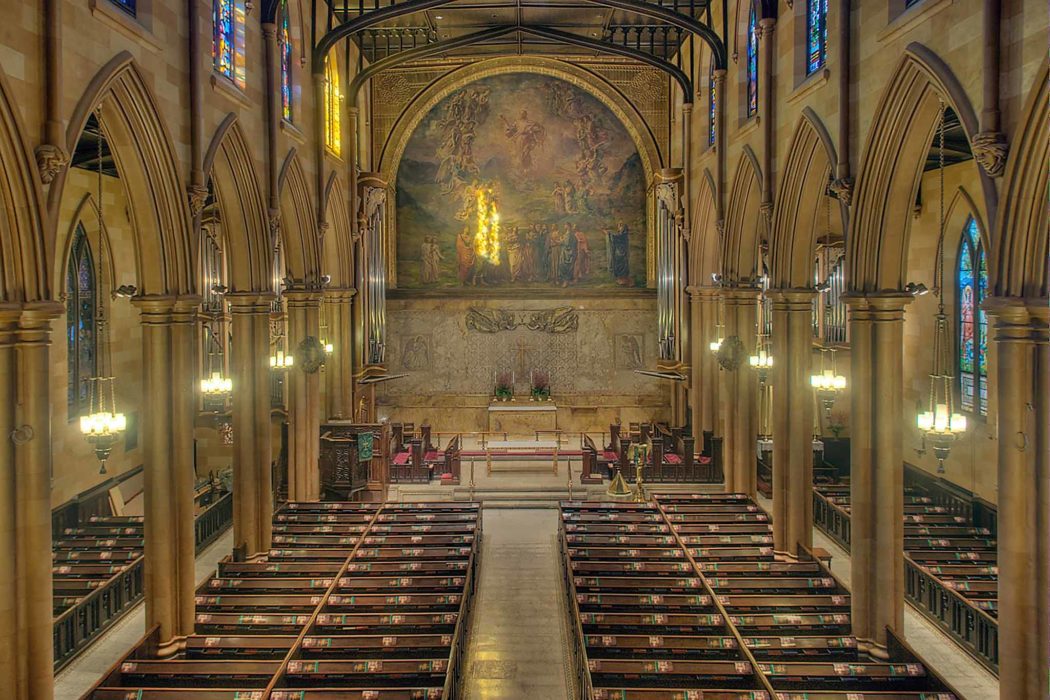PERCY STICKNEY GRANT wouldn’t take the job unless they acceded to his wishes. Like most Episcopal parishes, the Church of the Ascension at Fifth Avenue and 10th Street in New York collected monthly rents from its pews. Wealthy families could reserve seats closer to the front of the nave, and so, every Sunday, the congregation displayed the hierarchy of class distinctions among its members.
When Grant was asked to become Rector in 1893, he would have none of it. He told the vestry, the organization of parishioners who ran this Episcopal church, that either the paid pews would have to go, or he would. They relented, and Grant accepted the position.
Over the next nineteen years Percy Stickney Grant’s church became a center of social activism, and he became a lightning rod for controversy. Once Dr. Alexander Irvine, the Bowery evangelist and union organizer, had invited Grant to help with YMCA meetings in factories and repair shops. “Why should not the Church put a roof over their heads and surround them with beauty?” Grant thought to himself. So, every Sunday evening, he held a “People’s Forum,” where speakers addressed the congregation and discussed important issues of the day.

It lasted until 1920 when Grant ran afoul of the church hierarchy: such free public discussions frightened them. Grant was called to defend himself and his Forum before the 137th annual convention of the Episcopal Diocese of New York. “One cannot conduct a downtown church,” he argued, “in the same way you do churches in the Plaza section of Fifth Avenue, Park Avenue, and Madison Avenue. Don’t you think it is about time this diocese aided the downtown churches instead of ripping them up the back?”
Grant lost. The diocese sided with the Bishop of New York, Charles Sumner Burch, and killed the Forum.
But it wasn’t the first time Grant had come up against Bishop Burch. Back in 1912 Burch had reprimanded him for inviting ‘Abdu’l-Bahá to sit in the Bishop’s Chair behind the altar rail on April 14, the morning ‘Abdu’l-Bahá delivered his first public address in America. Bishop Murray of Maryland had reacted even more strongly, banning ‘Abdu’l-Bahá from Episcopal churches throughout his state.
“But an idiotic thing like that would never stop Percy Grant — only make him more defiant,” Juliet Thompson later wrote in her diary.
Indeed it did. The Reverend Dr. Percy Stickney Grant had already invited ‘Abdu’l-Bahá back to the Church of the Ascension, to speak to the People’s Forum on Sunday evening, June 2, 1912.
In tomorrow’s feature, ‘Abdu’l-Bahá takes questions from the People’s Forum.






